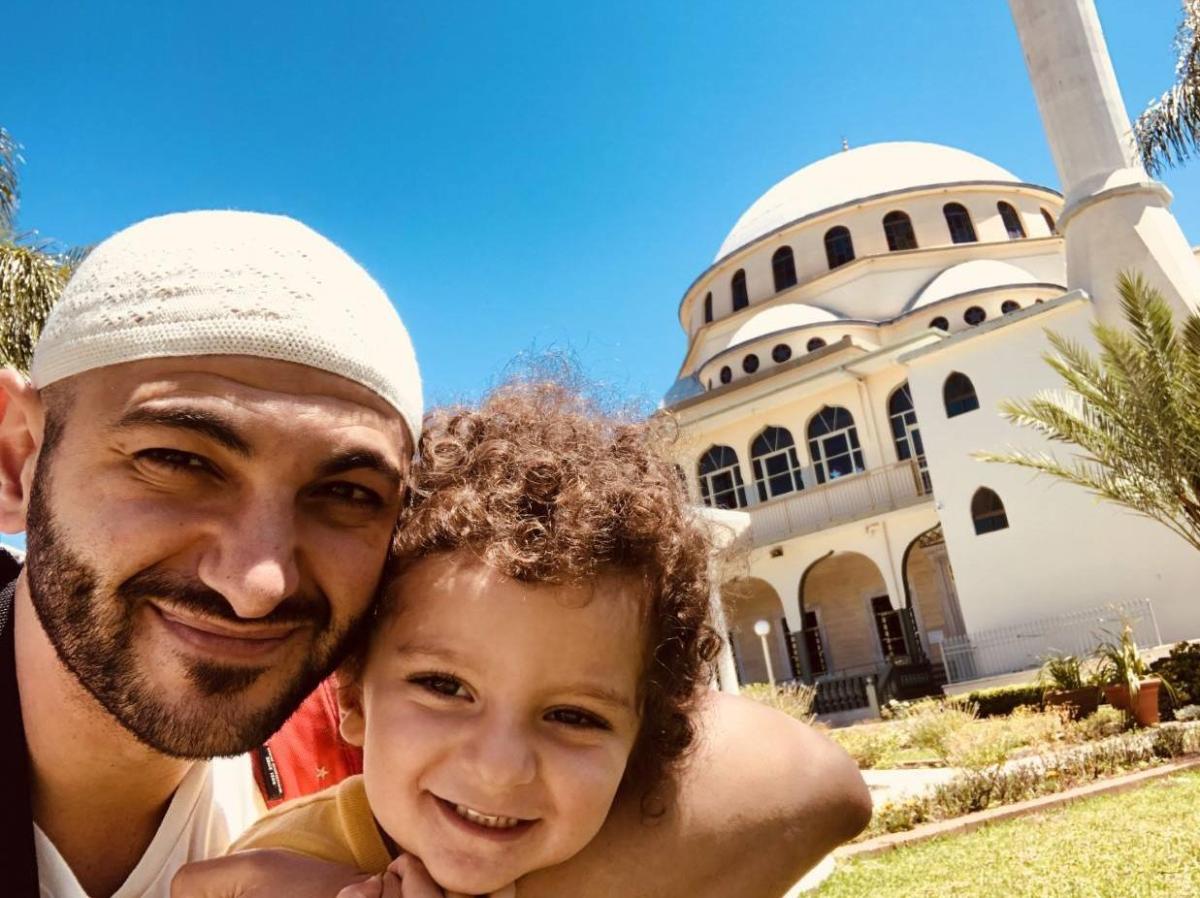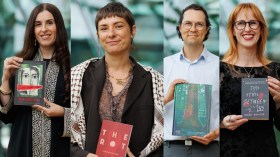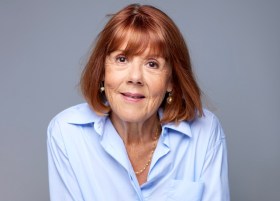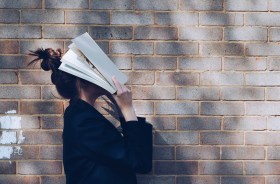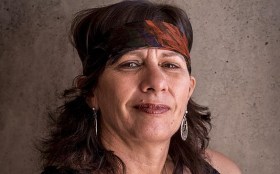Dr Michael Mohammed Ahmad and his son. Image supplied by the author.
On 15 March 2019, we watched in terror as a White supremacist from Australia entered two mosques in New Zealand during our sacred Friday prayers and executed 49 innocent worshippers, as well as injuring dozens of others. During and after the attack, I received an outpouring of confusion from my Muslim brothers and sisters, particularly those within the Australian arts community, who each attempted to process the news with feelings of grief, despair and anger.
For me, the past 18 hours have been a period of tears and deep reflection. It is well-known among my family and friends that each week I take my son, Kahlil Isa Ahmad, to a different mosque throughout Sydney. Within these peaceful dome structures, Kahlil and I pray, read and whisper stories to one another.
Some of the happiest moments in my life have been sitting quietly (which is extremely rare for me) and watching as my son plays and naps on the carpeted mosque floor between prayer times. This is what the mosque represents for me and the 1.7 billion other Muslims across the earth: a place of worship, harmony, humility, connection and love. For this reason, whatever your differences with Islam and Muslims, our mosques should always remain a safe and sacred space for us.
It was not only Muslims and people of colour who reached out to me when the news of the massacre had descended. I also received numerous emails and text messages from many of my White Australian friends and colleagues, who offered their solidarity, sympathies and compassion.
Whilst I am thankful for your thoughts during this difficult and painful chapter for Muslims in New Zealand, Australia and around the world, I couldn’t help but think back to all the times that I, alongside my Muslim brothers and sisters, have had to find the courage to speak up about racism, Islamophobia, White privilege and White supremacy on panels, in interviews, in the meeting rooms and in our writing, only to be told that we are reverse racists, we are exaggerating and we are being divisive. On other occasions, the White response to our concerns and complaints is agonising silence, as pale faces stare blankly back at us with indifference until we burn out and give up.
I do believe that the White Australians who have reached out to me and my fellow Muslims over the past day are sincere in their desire to support our healing. And if indeed, you do want to help us, I would like to extend this gentle request: believe us. When we call ‘racism’, ‘White supremacy’, ‘White privilege’, don’t feel sorry for yourself, don’t deny and dismiss it, don’t be silent around us and don’t try to silence us. Instead, listen to us and work with us to end White supremacy through our art and our work so that we no longer have to experience it on our streets.
Assalamu alaykum.
(This post originally appeared on Sweatshop’s Facebook page).

